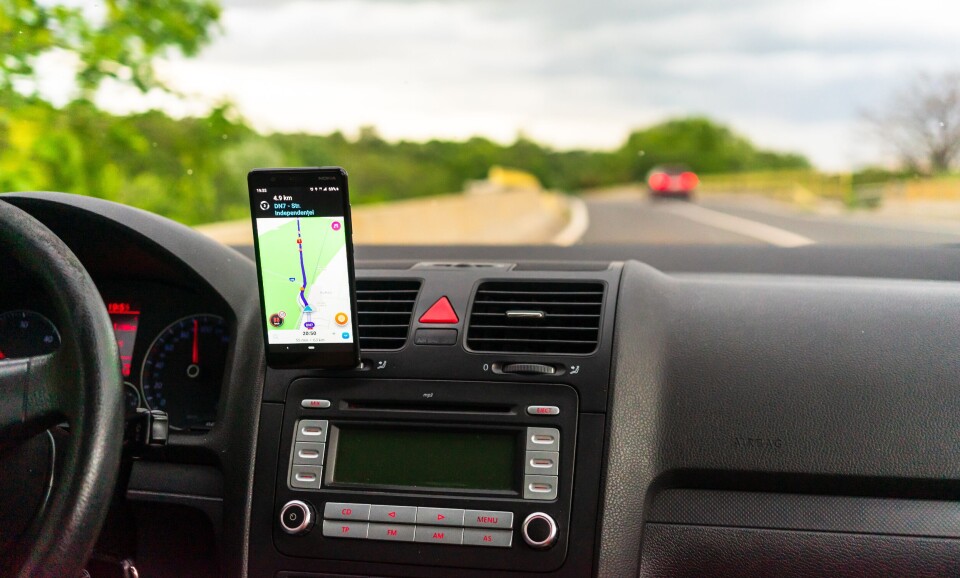-
Roadside noise cameras await approval to start issuing fines for loud vehicles in France
The devices known as meduses already exist in several cities but so far have only been ‘instructional’
-
White storks make strong return in France via nest ‘platforms’ and clipped wings
The Ligue pour la Protection des Oiseaux shares the conservation challenges in saving these birds from extinction
-
Hosting scheme in south-west France lets newcomers sample lifestyle
Households in nine Dordogne communes volunteer under Mes Nouveaux Voisins scheme
‘T’as les chocolatines?’ Waze app now offers three more French accents
You can set your sat nav app to direct - and maybe even shout at you - in three different French accents with the Toulousain option especially colourful

The driving app Waze can now be programmed to talk in a new range of French accents, including Toulousain and Provençal.
Waze, which is a satellite navigation (sat nav) app that helps drivers to get to their destination as fast as possible, is used by 14 million people in France.
Read more: Sat nav law change makes police checks in France harder to avoid
It has just launched three new voices in a bid to better represent cultural nuances following a poll of users on which accents they would like to see.
They are:
- Antonin: Toulousain accent (from Toulouse, Occitanie)
- Mireille: Provençal accent (from Provence, PACA)
- Biloute: Ch'ti accent (from the north of France)
To activate the voices, users need to go to settings and then into the voices and sounds section of the app.
Toulouse extras
The Toulouse accent option offers some particular extras, including region-specific expressions. Some well-known people with a Toulouse or ‘southern’ accent include former Prime Minister Jean Castex.
Read more: Lost glasses, Mr Lockdown: Memorable moments of French PM Jean Castex
The accent is characterised by longer ends of phrases, more pronunciation of the ‘e’ at the end of some words, and a slightly more open mouth, so that the word ‘accent’ – for example – might sound more like ‘ak-çant’.
Similarly, the phrase “du vin, du pain, du Boursin” (meaning “wine, bread, and Boursin cheese, the French brand of cream cheese with garlic) is sometimes used affectionately to parody the Toulouse accent, as the distinctive pronunciation can be heard particularly well on words ending in ‘in’.
In this case the words sound like ‘peng’ (roughly as in ‘penguin’), ‘veng’ and ‘bourseng’ (this video gives examples of this).
The expressions chosen by Waze are likely to cause hilarity among French speakers.
Waze’s Toulouse accent includes the expressions:
- “T’as les chocolatines?” - Instead of “tu as les pains au chocolat?” (Do you have the pains au chocolat?). Antonin would never use the phrase ‘pain au chocolat’, preferring to call the chocolate patisserie a ‘chocolatine’, in line with much of the south-west of France.
Read more: Pain au chocolat or chocolatine? The definitive map
- “A m'en donné” - A super-fast way of saying ‘à un moment donné’ (at a given moment). Toulousains are sometimes considered to swallow words.
- “..Si tu veux pas finir dans le bartas!” - A regional way of describing the side of the road, which translates as “...If you don’t want to end up in the ditch”.
- “Accident devant nous, boudu!” - This phrase, which translates as “Accident in front of us, boudu”, uses an exclamation of surprise or annoyance which comes from ‘bon Dieu’. Boudu is normally accompanied by the word ‘con’, to form ‘boudu con’ (‘b***ard’). But Waze stopped short of going that far…
- “Sois pas branquignole hein, fais attention!” - This slightly more colourful phrase translates as “Don't be a w****r, be careful!”. Basically, a Toulouse expression for calling someone a crazy and inconsiderate person.
- “C'est blindé de voitures, là!” - This means that an area is ‘packed’ with cars or people ahead.
- “Tout est dans la malle?” - This phrase (“Is everything in the boot?”) uses the Toulouse word for car boot (‘trunk’ in US English), which is ‘malle’ rather than the more usual French word ‘coffre’.
- “Adiou!” - A Toulousain way to say hello or goodbye in a breezy way. Comes from the Occitan ‘adiu’, and ‘A dieu’.
The app also released a video on Twitter (below), showing the three accents describing how to say “At my grandmother’s house”.
These vary from “Chez la mamée” (Nord), “Chez eum’grand’mère” (Provence) and “Chez memère” (Toulouse).
Related articles
12 French words that change dependent on region
Pain au chocolat? MPs table chocolatine amendment
























